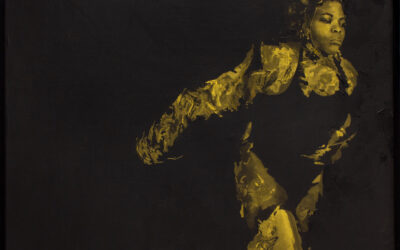A good-guys, bad-guys account of the Anglo-Boer War is tedious, but a Dutch revisiting is riveting, writes Shaun de Waal.
KRUGER, KOMMANDOS AND KAK by Chris Ash (30º South Publishing)
THE BOER WAR by Martin Bossenbroek (Jacana)
A few years ago the alt-country group The Possum Posse released their debut and so far only album, Let’s Ride, Boys! It had a significant subtitle: On the Importance of Commas. Clearly this work was unfamiliar to the designers of Kruger, Kommandos and Kak, who omit a comma on the cover, though in this case it doesn’t make much difference. All the commandos of the Anglo-Boer War were, basically, Transvaal president Paul Kruger’s commandos.
Chris Ash’s book is subtitled Debunking the Myths of the Boer War, and that is what he sets out robustly to do. Mostly he wants to counter what he sees as the pro-Boer bias in the past few decades’ historiography of the war, and to correct the idea that the wicked British Empire was to blame. He accuses Thomas Pakenham (The Boer War) of this bias.
Ash finds many of these myths to debunk, from the causes of the war to the concentration camps, pointing out various bits of balderdash someone wrote or said about the war, including the “leftist fantasy” that the British officer class was militarily “fuddy-duddy” and thus responsible for some of the more spectacular defeats the imperial army suffered early in the war.
He is concerned, even, to erase any lingering pro-Boer bias in the historical understanding of cannon guards and the sandbagging of cannon placements, but that, at least, he consigns to a footnote.
The causes of the war Ash attributes to Boer aggression, not British imperial expansionism. He quotes Theophilus Schreiner’s recollection of a conversation with Orange Free State president FW Reitz, in which the latter acknowledged Boer ambitions not only to protect the independence of the Boer republics but also to expand south and remove the British flag from all of this to-be-united South Africa. This chat, as recalled by Schreiner (brother of Olive the author and William the Cape Colony leader), took place in the late 1870s; two decades later, war looms and the “Dutch” clergy are “preaching the sword” to their uneducated, easily led rural Afrikaner congregants.
But then Schreiner was anti-war, as was a whole movement in Britain – a rather impressive one, and surely the forerunner of the anti-apartheid and anti-nuclear movements 70 to 80 years later. They were shouted down, eventually, by the gung-ho imperialists who were apparently in the majority in Britain and who advocated giving the Boers a good bashing, especially after those early defeats and into the drawn-out guerrilla phase.
Ash, for his part, pooh-poohs those in the imperial service who would be soft on the perfidious Boers, from the first responses to the great Boer ultimatum of 1899 (written by Reitz) to the contrasts between the approaches of lords Kitchener and Milner to the peace pact eventually negotiated with Louis Botha at Middelburg in 1901, which led to the Treaty of Vereeniging. Ash does, at least, bemoan (with H Rider Haggard) the agreements that left out the political future of up to a million black people.
The Boers were backward and barbaric, especially to the black tribes of the area; this Ash gleefully notes, believing that the natives would have been much better off under the British Empire than under the Boers, which is probably true, but not by a huge amount. He fully endorses the cause of the uitlanders – basically, non-Boers – in the Transvaal who wanted the vote (and there was a point at which the entire electorate of the Zuid-Afrikaansche Republiek comprised 14?000 people) and thinks the Jameson Raid was a jolly good idea. He supports Milner’s fortunately abortive programme to anglicise the Afrikaners by force.
This kind of tendentious history, with firmly delineated good guys and bad guys, can be entertaining, and sometimes a useful corrective to older biases. But so great is Ash’s anti-Boer bias – and so great his desire to thump home, on every page, his refutations of Pakenham and any others who might be soft on the Boers – that the book becomes tedious reading.
It is also marred by errors, some inexcusable in a history book (“Cetawayo”, for one), others minor but irksome. He and his editors misspell both categories of Boer in the latter stages of the war – the hensoppers who surrendered (“hands-uppers”, itself an anglicism) and the bittereinders who wanted to fight on to the bitter end – even if, like Christiaan de Wet, they couldn’t take orders from the Boer command or co-operate with their fellow generals, so it was a pretty hopeless business.
Dutch historian Martin Bossenbroek, by contrast with Ash, has no aim to debunk anything. Rather, his purpose is to tell the story of the war in as holistic and readable a fashion as possible, and in this he succeeds. The Boer War (haven’t they heard it was redubbed the Anglo-Boer South African War?) was written in Dutch, winning a major history prize in the Netherlands in 2013; it has since been translated into Afrikaans and English. It reads very well in both.
Bossenbroek’s narrative is focused through the experiences of three men who were involved: Winston Churchill, who was an embedded journalist with the British army; the young Boer fighter Denys Reitz; and Willem Leyds, a Dutchman who was the Transvaal Republic’s man in Europe during the war.
Luckily for Bossenbroek, Churchill and Reitz wrote accounts of their war experiences, Reitz later (the fabled Commando) and Churchill at the time – for the 19th century, he was reporting as good as live. Journalist or not, he was on the British side, though he admired the “plucky” Boer, and did take up arms. He managed to get caught and imprisoned by the Boers, then make an escape – excellent copy for the British press.
Of course Churchill was a propagandist for himself, too – and he got a seat in Parliament well before the war ended – but he did write with a certain vigour and, if one bears his bias in mind, his writing becomes very useful to the historian.
Leyds, naturally, was a diplomatic propagandist for the Boers in Europe, not that it helped – despite the hero’s welcome the exiled 75-year-old Kruger got when Leyds took him around the seats of European power in 1900, nobody was going to take on the British Empire.
Threading the stories of these figures into a bigger tapestry of the war, Bossenbroek also avoids overcomplication in his account and certainly downgrades the purely military aspect: where other Anglo-Boer South African War books give the battle of Colenso, say, several pages’ worth of attention, Bossenbroek is done with it in a few paragraphs. At the same time, giving the Leyds point of view adds a fresh European dimension to the story of the war.
Bossenbroek’s is an excellent account for the general reader, but Ash’s book will be of interest only to specialists or those who wish to fight old political battles over again.
Bittereinders, really.
via Mail & Guardian






